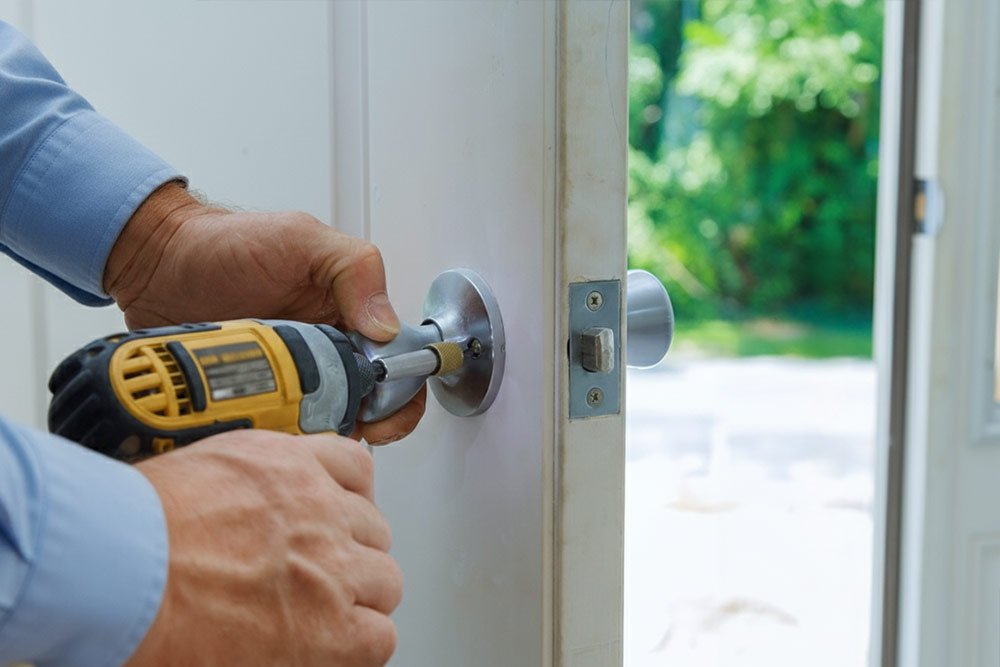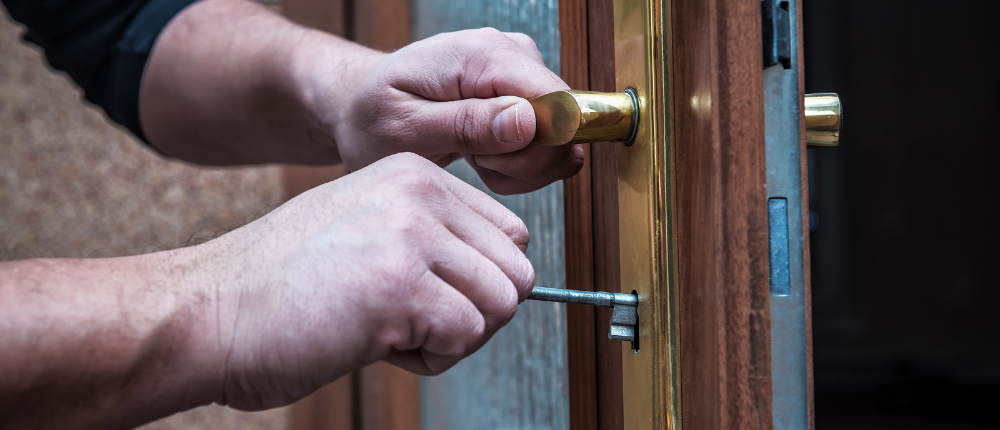When most people think of locksmiths, the first image that comes to mind is someone helping you get back into your car or home after locking yourself out. While that’s certainly part of the job, locksmith services extend far beyond simply cutting keys or unlocking doors. In reality, locksmiths play a critical role in security, technology, and property protection across residential, commercial, and automotive settings.
In this comprehensive guide, we’ll take a deeper look at what a locksmith actually does, the wide range of locksmith services available today, and why having a trusted locksmith on call is essential for both peace of mind and safety.
The Evolving Role of a Locksmith
Locksmiths have come a long way from the traditional image of craftsmen shaping metal keys and installing mechanical locks. In ancient times, locksmiths were skilled metalworkers who built locks by hand. Today, their work spans advanced technologies, digital systems, and even smart access solutions. Modern locksmiths combine craftsmanship with technological expertise. They’re trained to understand mechanical and electronic locking mechanisms, security systems, safes, and access controls. They are not only problem-solvers in emergencies but also security consultants who help protect homes, vehicles, and businesses. Whether it’s rekeying locks, installing digital access systems, or integrating biometric entry controls, professional locksmith services now cover a diverse spectrum that continues to evolve with the pace of innovation.
Understanding Locksmith Services
Locksmith services are much more than emergency lockouts. A professional locksmith is trained to handle multiple security needs, ensuring that locks, keys, and access systems function reliably and safely. Below are some of the core locksmith services offered today.
1. Residential Locksmith Services
Home security begins with strong locks and reliable access control. Residential locksmiths specialize in services that protect homeowners and families. Their work typically includes:
- Lock installation and replacement: Installing high-security locks, deadbolts, and keyless entry systems.
- Rekeying locks: Changing the internal mechanism of a lock so that old keys no longer work.
- Emergency lockout assistance: Helping residents regain access after being locked out.
- Key duplication: Providing spare keys for convenience and safety.
- Security upgrades: Installing smart locks, cameras, or keypads for modern homes.
- Safe installation: Setting up safes for valuable documents, jewelry, and firearms.
With home invasions and burglaries still a concern in many areas, having a locksmith evaluate your home’s entry points and recommend improvements can significantly boost security.
2. Commercial Locksmith Services
Business security is complex, requiring more advanced systems to control access, protect assets, and manage staff entry. Commercial locksmiths serve offices, retail stores, warehouses, and institutions with specialized solutions such as:
- Master key systems: Allowing property managers to control multiple locks with one master key.
- Access control systems: Integrating card readers, PIN pads, or biometric scanners for secure entry.
- High-security locks: Installing tamper-proof and pick-resistant mechanisms.
- Lock rekeying and reconfiguration: Ensuring former employees can no longer access facilities.
- Safe and vault services: Maintaining and repairing business safes and cash drawers.
- Emergency door repair: Restoring security quickly after break-ins or damage.
For businesses, locksmith services are about more than locks; they’re about operational security, employee safety, and compliance with building standards.
3. Automotive Locksmith Services
Few things are more stressful than realizing your keys are locked inside your vehicle or that you’ve lost them entirely. Automotive locksmiths provide fast, mobile assistance for car-related lock and key issues. Their services often include:
- Car lockout assistance: Unlocking vehicles safely without causing damage.
- Key duplication and replacement: Cutting and programming new keys, even for transponder or keyless fobs.
- Ignition repair and replacement: Fixing ignition cylinder problems that prevent the car from starting.
- Broken key extraction: Removing snapped keys from locks or ignitions.
- Reprogramming electronic keys: Configuring new keys to sync with the car’s onboard computer.
Modern vehicles require locksmiths with deep technical knowledge, as automotive locks and ignition systems are now integrated with advanced security software.
4. Emergency Locksmith Services: The Lifesavers
Lockouts and security failures rarely happen at convenient times. That’s why 24/7 emergency locksmith services are invaluable. Whether you’re locked out of your house at midnight, your business safe won’t open, or your car key breaks while traveling, emergency locksmiths are trained to respond quickly.
Typical emergency situations include:
- Home or car lockouts
- Lost or stolen keys
- Jammed or broken locks
- Burglary repairs
- Faulty security systems
Emergency locksmiths carry specialized tools to open doors, safes, and vehicles without causing damage. Their fast response ensures that clients regain access and restore security immediately.
The Technology Behind Modern Locksmithing
As security systems have evolved, so has the locksmith industry. Many locksmiths today are skilled in both mechanical and electronic systems.
1. Smart Locks and Keyless Entry
Smart locks have revolutionized residential and commercial security. Instead of physical keys, these locks use PIN codes, smartphones, or biometrics for entry. Locksmiths are essential for:
- Installing and configuring smart locks
- Troubleshooting connectivity issues
- Integrating locks with home automation systems
- Ensuring compatibility with existing doors
2. Biometric Security Systems
In high-security environments, biometric locks use fingerprints, facial recognition, or retina scans for access. Locksmiths trained in these systems help with installation, calibration, and maintenance to ensure accuracy and reliability.
3. Access Control Integration
For businesses, access control systems allow managers to monitor and manage who enters specific areas. Locksmiths integrate electronic locks, sensors, and software platforms to create layered security setups.
4. Security Cameras and Alarm Systems
While not all locksmiths install full surveillance systems, many provide complementary services such as door sensors, panic bars, and alarm triggers. Their expertise ensures that physical locks and electronic systems work together seamlessly.
Rekeying vs. Replacing Locks
One of the most common questions property owners ask is whether they should rekey or replace their locks.
- Rekeying involves changing the pins inside the lock so that old keys no longer fit. This is ideal when moving into a new home or after losing keys.
- Replacing locks is necessary when the lock is damaged, outdated, or when you want a full upgrade to high-security or digital systems.
A professional locksmith can assess which option is best for your situation, balancing cost, convenience, and security.
Safes and Vaults: Locksmiths Beyond Doors
Locksmith services also cover safes and vaults, which are vital for protecting valuables. Locksmiths can:
- Install new safes or vaults
- Open locked or jammed safes
- Repair mechanical or electronic safe locks
- Reset combinations
- Relocate heavy safes
This specialized work requires precision and discretion, as locksmiths often deal with sensitive or high-value assets.
Why Professional Locksmith Services Matter?
With countless DIY tutorials online, some homeowners try to fix or install locks themselves. However, professional locksmiths bring advantages that go far beyond what DIY methods can offer:
- Expertise: Locksmiths are trained to work on all lock types, from antique mechanisms to smart locks.
- Proper tools: They use precision instruments designed for lock repair and installation.
- Security insight: Locksmiths identify vulnerabilities you might overlook.
- Damage prevention: Professionals minimize the risk of harming doors, frames, or systems.
- Reliability: Licensed locksmiths are insured, ensuring accountability and peace of mind.
When security is on the line, trusting a certified locksmith ensures that the job is done correctly and safely.
Locksmith Services in the Digital Age
The locksmith profession is adapting to the demands of smart homes, automated security, and interconnected systems. Today’s locksmiths often partner with technology providers to deliver integrated protection.
Examples include:
- Installing Wi-Fi-enabled locks that can be controlled via smartphone apps.
- Programming temporary digital keys for guests or service workers.
- Synchronizing door locks with home security systems for automated locking schedules.
- Maintaining cloud-based access logs for commercial properties.
As technology advances, locksmiths remain at the forefront of bridging mechanical reliability with digital convenience.
Preventive Security and Maintenance
Locksmith services are not limited to emergencies—they’re also about prevention. Regular maintenance helps extend the life of your locks and prevent future problems.
Professional locksmiths can:
- Lubricate lock mechanisms
- Test smart lock batteries and firmware
- Adjust misaligned doors
- Check strike plates and hinges
- Reassess key control policies
A proactive approach ensures that your security systems perform effectively year-round.
The Future of Locksmith Services
The future of locksmithing is bright, with exciting innovations on the horizon. Artificial intelligence, biometrics, and IoT (Internet of Things) technology are reshaping how locks function and how locksmiths operate.
Upcoming trends include:
- AI-driven security systems that detect unusual access patterns.
- Blockchain-based access management for tamper-proof digital keys.
- Voice-activated locks integrated with smart assistants.
- Mobile locksmith apps for instant service scheduling and tracking.
Locksmiths are no longer just keymakers; they’re becoming security engineers equipped to handle digital ecosystems.
When to Call a Locksmith
Knowing when to call a locksmith can save time, stress, and potential damage. You should contact a professional locksmith if:
- You’ve been locked out of your home, car, or office.
- Your keys are lost, stolen, or broken.
- You’ve moved to a new property.
- You want to upgrade to smart or high-security locks.
- Your locks are damaged or malfunctioning.
- You need safes or vaults installed or serviced.
- You manage a business that requires master key systems or access control.
A reliable locksmith provides peace of mind, ensuring that your security concerns are resolved efficiently.
How to Find Reliable Locksmith Services
When searching for a locksmith, follow these steps to ensure you’re hiring a trustworthy professional:
- Ask for referrals from friends, family, or local businesses.
- Check credentials and ensure the locksmith is licensed.
- Read online reviews on platforms like Google or Yelp.
- Compare quotes and watch for unusually low prices, which can signal scams.
- Verify their business address and ensure they’re a local provider.
- Request identification when the locksmith arrives.
A good locksmith prioritizes transparency, professionalism, and customer satisfaction.
Why Every Home and Business Needs a Trusted Locksmith
Security is not just about locks; it’s about trust. Having a reliable locksmith partner means you have someone who understands your property’s vulnerabilities and can offer long-term solutions. From emergency lockouts to installing advanced security systems, locksmith services ensure that your safety, privacy, and convenience are never compromised. In a world where technology and threats constantly evolve, locksmiths provide the expertise and confidence needed to stay one step ahead.
Common Myths About Locksmiths
Despite their importance, locksmiths are often misunderstood. Here are a few myths worth clearing up:
- Myth 1: Locksmiths only cut keys.
Reality: They provide complex mechanical and digital security services. - Myth 2: Locksmiths are expensive.
Reality: Considering the security and expertise they provide, locksmith services are a cost-effective investment. - Myth 3: Locksmiths can open any lock instantly.
Reality: Some high-security locks require time, skill, and specialized tools to unlock properly. - Myth 4: You don’t need a locksmith in the digital age.
Reality: Even smart locks need professional installation, programming, and maintenance.
Conclusion
Locksmiths are far more than key cutters or emergency responders. They are essential protectors of access, safety, and peace of mind. Whether you need to secure your home, fortify your business, or regain access to your vehicle, professional locksmith services deliver expertise, precision, and reliability.
As technology continues to transform the way we live and work, locksmiths will remain at the center of modern security, bridging the gap between mechanical craftsmanship and digital innovation. Next time you need security solutions, remember the depth behind the profession and consult Master of Locks for comprehensive support.


